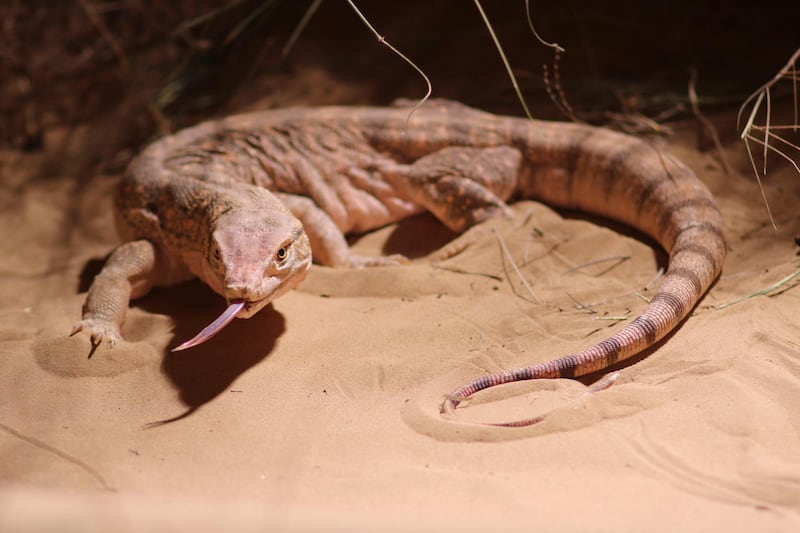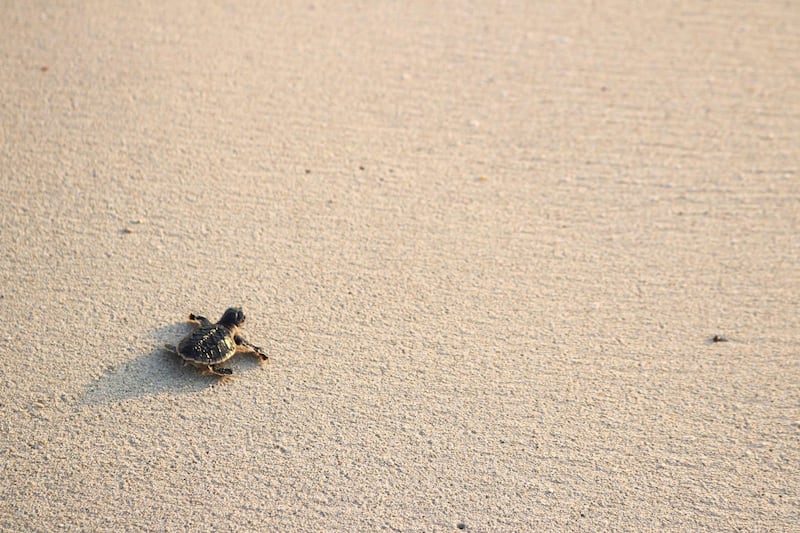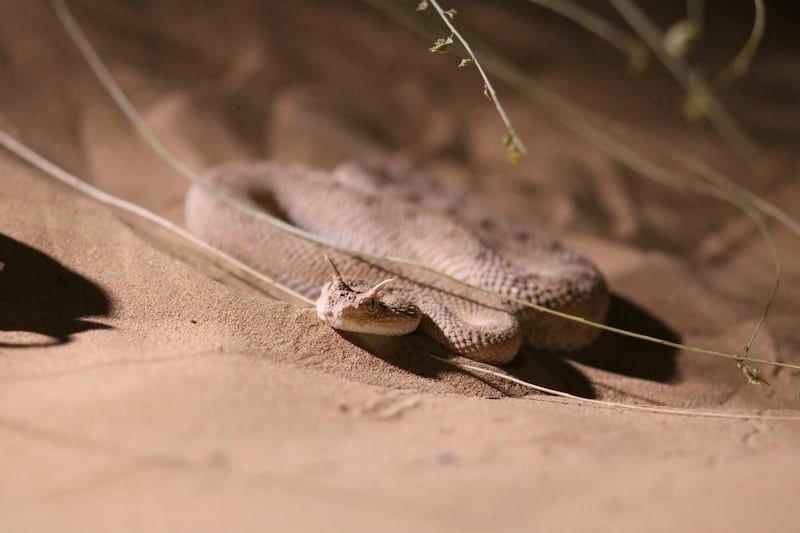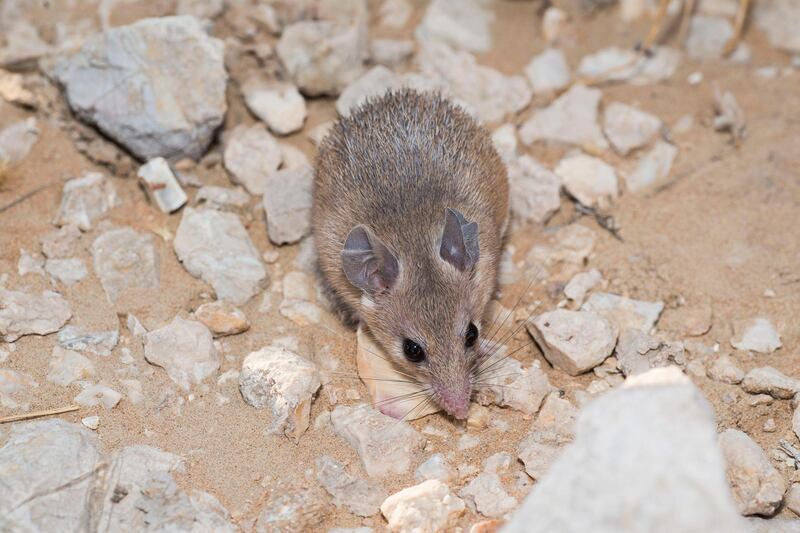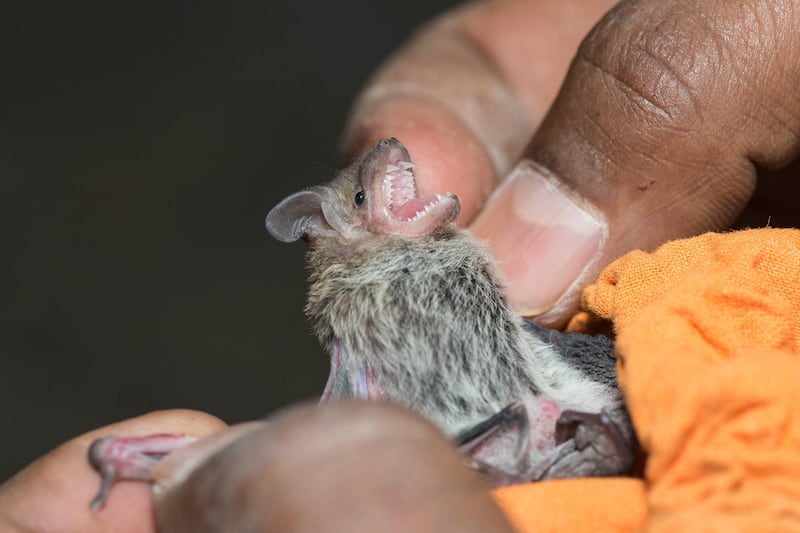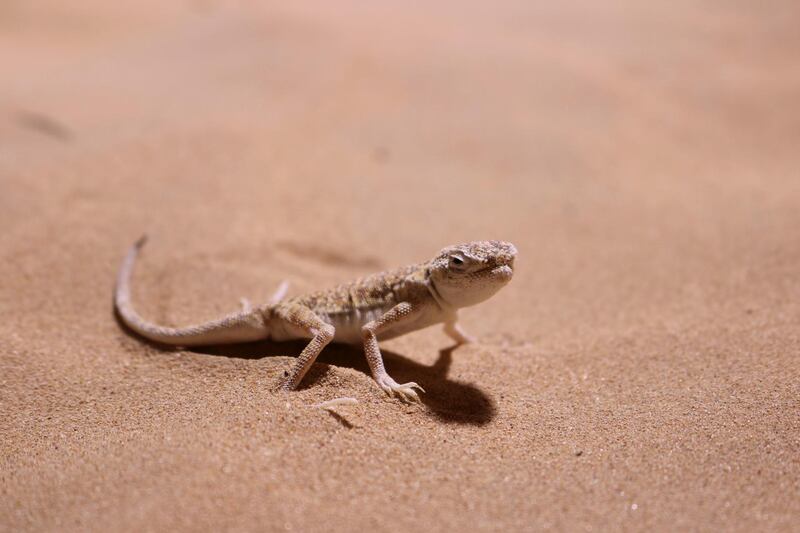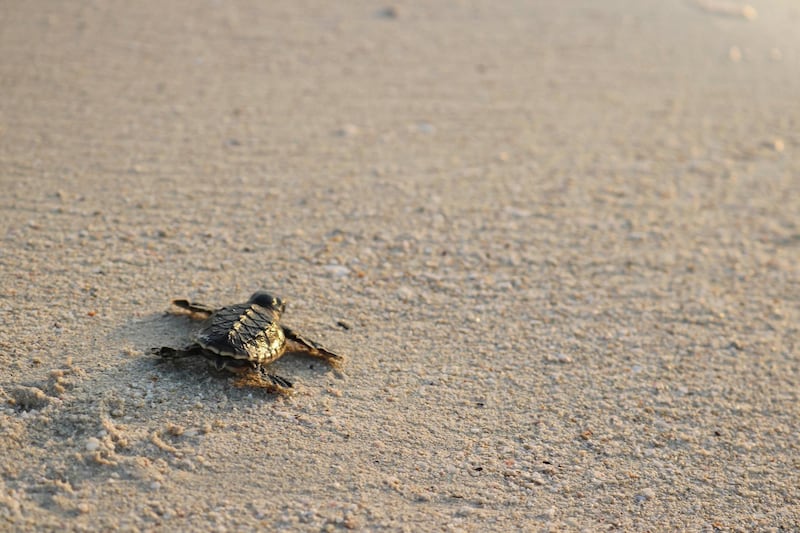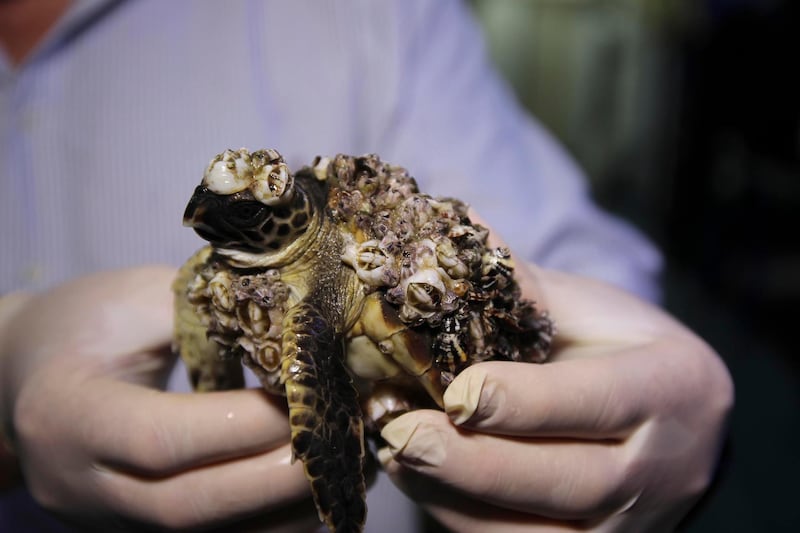When it comes to nature documentaries, Dr Martha Holmes, head of natural history at Plimsoll Productions in the United Kingdom and Bafta-winning director David Johnson have an impressive pedigree.
Holmes, both at Plimsoll and in her previous role with the BBC's Natural History Unit, has worked on award-winning and globally successful shows such as Blue Planet and Predators, while Johnson has worked extensively around the world, including in Iraq for the BBC documentary Miracle in the Mesopotamian Marshes.
Think Dubai isn't fauna-diverse? You're wrong
You may well ask what has brought them to Dubai – we’re all used to seeing the city’s architecture lauded on screen and, of course, camels and falcons are a mainstay of tourism clips. Surely though, there can’t be too much else in terms of wildlife between the concrete and glass of the city, and the desert beyond?
Holmes and Johnson would beg to differ. They were in Dubai last week to promote their forthcoming Discovery Channel documentary Wild Dubai. "We initially pitched two documentaries – land and sea," Holmes reveals. "But it was decided to do just the one. There was definitely enough for two, though. We ended up having to drop animals. We were genuinely surprised how much life there was here."
Discovery Channel announces Wildlife Documentary, ‘Wild Dubai’ premiering exclusively on OSN on Tuesday, October 9.#WildDubaiDocumentary pic.twitter.com/r05MHMkkEG
— Dubai Media Office (@DXBMediaOffice) October 2, 2018
Johnson agrees: “It was one of those situations where you scratch the surface and realise that even in a small space like Dubai, there’s far more wildlife than you realise,” he says. “The popular conception is that everything here is man-made, but actually if you look outside the city, there is extensive wildlife. Not huge in numbers maybe, it’s a desert and it can’t support that so you wouldn’t expect it, but there are a lot of very special species.”
Wild Dubai beautifully shows a side to the emirate that many residents and visitors have yet to uncover.#WildDubaiDocumentary pic.twitter.com/9P7VHzGjXk
— Dubai Media Office (@DXBMediaOffice) October 2, 2018
In fact, Dubai is home to a number of conservation areas, including the Dubai Desert Conservation Reserve, which is home to more than 300 species, the Jebel Ali Wildlife Sanctuary and the avian retreat at Ras Al Khor Wildlife Sanctury – home to an indigenous population of more than 1,000 pink flamingos, and even more when migrating birds join them from Iran, Abu Dhabi and Turkey in winter.
The micro-system of Jebel Nazwa & the beauty of the mountains
The pair have thrown their net far and wide in their search for Dubai’s surprising natives – quite literally in the Jebel Nazwa region, where bats are being tagged and monitored by a team of scientists. “Jebel Nazwa is this unique rocky limestone outcrop,” Johnson explains. “There’s really nothing else like it in the emirate, and like any unusual geographical feature, it attracts its own unique micro-ecosystem that attracts species you won’t find anywhere else. In this case a huge bat colony.”
The pair are also quick to remind us that, despite the postcards, Dubai isn’t all about city and desert. The mountains around Hatta offer some of the most diverse wildlife in the emirate. “The mountains are the wettest area of Dubai, though that’s not saying much,” he says. “You get little mountain streams in winter, but not really in summer, so you’d expect aquatic species to die out, but they’ve adapted. The Arabian toad can sense when things are getting dry, and dig a burrow deep down into the sand and hibernate.”
The ingenious amphibian is almost doing the exact opposite of fish in cold climates, which freeze themselves under the ice in winter, only to awaken when the water melts in spring. So how do our toadie friends know when it’s time to wake up? “You really don’t have to burrow very deep to notice a significant drop in temperature, and it retains some moisture down there because it’s not being evaporated by the sun. So they can just wait there until their hypersensitive inner ear detects the sound of tiny raindrops on the surface, then they know it’s time to come up.”
Despite his vast experience, Johnson seems in awe of some of the creatures he encountered on the documentary's three shoots over a year, timed to catch the full changing of Dubai's seasons. "The horned viper is such a fantastic animal to look at," he says. "It's like something out of Harry Potter, a really incredible creature. But almost every animal here is amazing. It's such an extreme environment, and their adaptations have to be so good just to survive. It's really fascinating."
________________
Read more:
Documentary on Dubai's wildlife to premiere in October
Shark Week can reel more residents into preserving marine life
Bear Grylls on going head-to-head with sharks
________________
The documentary offers an incredible insight into Dubai’s surprisingly varied range of birds, mammals, reptiles and more. From parading flamingos, to the rather impolite mating habits of spiny lizards, and the constant worry of living life as a desert gerbil. I’ve lived in the UAE for eight years, and in Dubai for seven of those, and was genuinely surprised to learn quite how much wildlife there is, right on our doorstep. This surprise was shared by many other audience members at the premiere screening, some of whom had spent their entire lives here. And yes, the ubiquitous camel and falcon had their moments, too.
Despite that, Johnson and Holmes have already told us that they ended up dropping some animals to fit the single episode format, so can we expect to see part two? “We didn’t really even touch on arachnids, and there’s loads of them,” Johnson says. “There’s really so many species, you can’t cover everything in a single documentary. Spiders, scorpions. I actually spoke to a wildlife photographer who had recently found a bone-fida new species of tarantula up in the mountains. So yes, I’d do another one at the drop of a hat. I had a fascinating, delightful experience and met some wonderful people.”
Johnson’s producer’s mind seems to have been set in motion by the mention of arachnids: “You could do a great macro series with all the little small critters we didn’t have time to feature,” Holmes thinks aloud, perhaps giving us a hint of things to come.
Wild Dubai airs on the Discovery Channel tomorrow at 9pm
